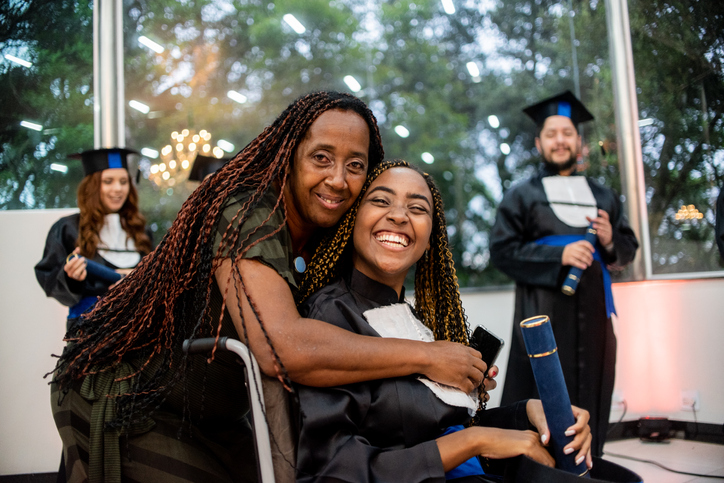Education
Education is the cornerstone of realizing the ADA’s goals of full participation, independent living, economic self-sufficiency, and equal opportunity.
AAPD is committed to promoting access to education from preschool through post-graduate work. We take a comprehensive approach to educational access, including advocacy, partnerships with educational institutions, and programs designed to break down barriers to education.
Access to education requires thoughtful, robust engagement in policy. AAPD works with a broad coalition that includes civil rights groups, educators to promote education policy that benefits students with disabilities.
30 Seconds: AAPD’s Campaign to Stop Bullying
Seclusion and Restraint
Principles for School Safety, Privacy, and Equity
AAPD and 39 other education, privacy, disability rights, and civil rights organizations released ten principles to protect all students’ safety, privacy, and right to an equal education. The principles are meant to serve as a starting point for conversations with policymakers and school officials about how to keep students safe while respecting their dignity and encouraging their individual growth.
NBCUniversal Tony Coelho Media Scholarship
Other Scholarships
- Hamilton Relay College Scholarship
The Hamilton Relay Scholarship supports high school students who are deaf, hard of hearing, deaf-blind, or have difficulty speaking with a $500 college scholarship. - Quell Foundation Scholarships
The Quell Foundation offers scholarships to students who have experienced the loss of a loved one to suicide, to students diagnosed with mental health conditions, and students pursuing a degree in psychology, social work, or other fields of study related to the provision of mental health services. - disABLEDperson, Inc. Scholarships
disABLEDperson, Inc. runs a $2,000 National Scholarship Competition for college students with disabilities. - College Scholarships and Financial Aid for Students with Disabilities – Affordable Colleges Online
- Scholarships and Financial Aid for Students with Disabilities – Community for Accredited Online Schools
- Going Merry – Going Merry makes it easy for current and aspiring college students to apply directly for scholarships and save money on tuition.
- Nursing Scholarships for Students With Disabilities – NurseJournal.org compiled the following free list of nursing scholarships and funding opportunities for both high school and undergraduate students with disabilities.
